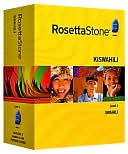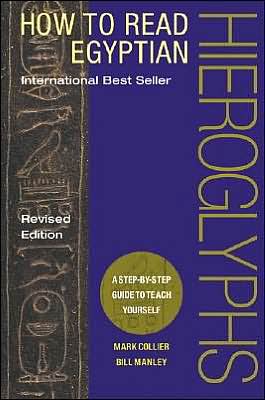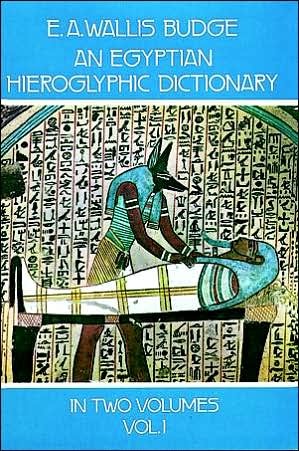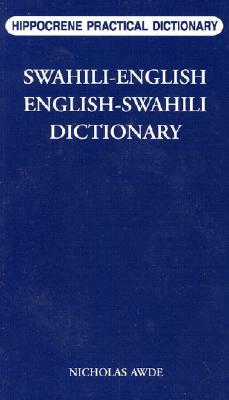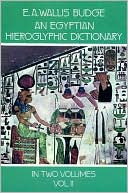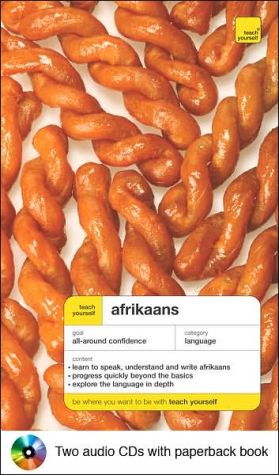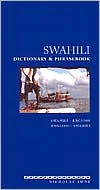A Hausa-English Dictionary
This up-to-date volume, the first Hausa-English dictionary published in a quarter of a century, is written with language learners and practical users in mind. With over 10,000 entries, it primarily covers Standard Nigerian Hausa but also includes numerous forms from Niger and other dialect areas of Nigeria.\ \ The dictionary includes new Hausa terminology for products, events, and activities of the modern world. Its definitions show the use of Hausa words in context, and particular attention...
Search in google:
This up-to-date volume, the first Hausa-English dictionary published in a quarter of a century, is written with language learners and practical users in mind. With over 10,000 entries, it primarily covers Standard Nigerian Hausa but also includes numerous forms from Niger and other dialect areas of Nigeria. The dictionary includes new Hausa terminology for products, events, and activities of the modern world. Its definitions show the use of Hausa words in context, and particular attention is paid to idioms, figurative meanings, and special usages. As a guide to pronunciation, headwords and illustrative sentences are fully marked for tone and vowel length. The book adopts a unique approach to the presentation of verb forms that clarifies lexical relationships and their correct usage. Marianne Orme - Library Journal Prominent Hausa linguist Newman (emeritus, Indiana Univ.) incorporates quality scholarship on this African language into an updated resource. As the companion volume to Roxana Ma Newman's An English-Hausa Dictionary(Yale Univ., 1990), this work offers more than 10,000 entries in English explaining Hausa words, primarily covering Standard Nigerian Hausa but also including numerous forms from Niger and other dialect areas of Nigeria. Newman offers valuable grammatical resources in both the entries and the supporting matter. In the entries, his biggest contribution concerns verb presentation: Newman puts each verb "stem" in bold type and capitalizes each entry's headword to group together variants-namely, categories known as grades-of the same verb. In the past, variants have been listed in strictly alphabetical order. Also, many of the entries here provide short sample sentences using the defined word. The 13-page introduction discusses all grammatical classes, such as five categories of verbal nouns and a table of plural formations. Three appendixes offer paradigms for Hausa pronouns and a listing naming days of the week and months of the year. Unfortunately, the work lacks a glossary to assist with linguistic terms left undefined in the introduction.
A Hausa-English Dictionary By Paul Newman Yale University Press Copyright © 2007 Yale University All right reserved. ISBN: 978-0-300-12246-6 Chapter One A a pro One, they (impersonal wsp). (Tone and 0. vary acc. to tense-aspect; see Appendix A.) à prep 1. At, in (place): ~ gida takè. She is at home. Ka zubà batura ~ tocìlàn? Did you put batteries in the flashlight? 2. Opt. precedes genitive prepositions: Na sâ shi (à) kân tebùr. I put it on the table. 3. At, in (time): ~ lokàcîn nan At that time. 4. Precedes adverbs of state or manner: Mun hango sù à boye bayan bishiya. We saw them hidden behind the tree. Tana màgana ~ àsìrce. She was speaking secretly. a'a excl Exclamation of surprise. a'a excl No. à'àla f Importance (= muhimmanci). àba fem. of àbù. ababa pl. of àbù. abacadâ m ABC's (cf. abjàdi). The Hausa alphabet has the following letters: a, b, b, c, d, tf, e, f, fy, g, gw, gy, h, i, j, k, kw, ky, k, kw, ky, l, m, n, o, r, s, sh, t, ts, u, w, y, 'y, z, '. In speaking, the consonants are all pronounced with the vowel a, e.g., fa, la, ma, tsa, etc. The letter p is sometimes used in loanwords, but is not considered part of the Hausa alphabet. The consonant' (glottal stop) is not written in word-initial position. The two different R's in the language (r and r) are not distinguished in standard orthography. àbàdâ adv (usu. har ~) 1. Always, forever. 2. (in neg.) Never: 'Yan siyasàn nân har ~ bà za sù yi hankàh ba. These politicians will never act responsibly. àbadàn àbadìn adv For ever and ever, for eternity. àbaici m/f Posthumous child. abaleshi m Hammer with wooden handle. àbàrba f Pineapple. àbasaya m Overseer. àbataya m Overtime. abawa f Loosely spun, coarse cotton thread used for weaving. àbaya f Lightweight woman's cloak. abbà m 1. Dad. 2. Respectful term of address to an older man. àbin m (gen. of àbù) 1. Thing of/for: ~ ado Ornament, jewelry; ~ dariya Sth funny; ~ shâ A drink, sth to drink; ~ nàn Thingamaj ig, what's-its-name. 2. Used in Tàfi ~kA Calm down and just leave! (said to s.o. in breaking up a dispute). Ya tàfi ~sà. He went on his way. 3. Idiom: ~kà dà X ... You know how it is with X ... : ~kà dà yâra; wasa kawài suke. You know how it is with children; all they do is play. 4. àbin dà = àbîn dà That which, what: ~ dà ya ce bà zâi yiwu ba. What he said cannot be done. àbinci m 1. Food, a meal. 2. Means of living: Ya tàfi neman ~. He went looking for work. àbin-gaba m Arms, military equipment. àbin-hannu m 1. Wealth. 2. Bracelet. àbin-wuyà m Necklace. abjàdi m Alphabet. àbokànai pl. of àboki. àbokàntaka f Friendship (= àbota). àboki m (f. àbokiya, àbuya) 1. Friend, companion. 2. Counterpart, psn with whom one shares or participates in some activity (either positive or negative): ~n aiki Co-worker, colleague; ~n ciniki Customer; ~n gaba Foe, enemy; ~n haihùwa Twin; ~ wasa (a) Playmate, (b) Cross-cousin (child of mother's brother or father's sister); ~ zama Roommate. 3. Member of an ethnic group with which your group has a joking relationship. àbokìya 1. fem. of àboki. 2. ~r zama A woman's term of reference for a co-wife (cf. kishiya). àbota, àbuta f Friendship: karà dankòn ~ Cement a friendship. àbù m (f. àba) (gen. àbin) 1. Thing: wani ~ Something. 2. Property. 3. Matter: bàbban ~ Important matter. abubuwa pl. of àbù. àbun [d.v.] = àbin. àbuta = àbota. àbutaka = àbuta. Abzinawa pl. of Bà'abzuni. à-caba see dan à-caba. acca f Fonio. à-ci-ba-don-dadi-ba = ci-kar-kà-mutù. à-ci-bàlbàl f Oil-burning lamp. à-ci-dà-mâi m Kind of rice tuwo eaten with oil, pepper, and spices instead of sauce. à-ci-duniya-dà-tsinke f Lollipop. adàbi m Literature. adabô m 1. Goodbye. 2. yi ~ Say goodbye (to): Ya yi ~ dà aikìn sojà. He left his job in the military. àdàdà m Rectangular mat house or shed with thatch roof. adàdi m Numeral, number, sum: ~n yawàn jàma'àr kasa ya ninka sàu biyu. The number of people in the country has doubled. àda'i m Compensation for a missed religious obligation. àdaka f 1. Large box, crate (esp. of metal) (= sànduki_. 2. (obs.) Dane gun. adalci m Fairness, justice: Shugàban kasa yana dà ~. The president is just. adàli m Honest, upright psn. ADAN- \| adàna v1 {adàni} 1. Look after carefully. 2. Put away, store. àdàna m 1. Inferior or low quality (of goods). 2. Inferior or backward (of psn). adàni m 1. Looking after or temporarily adopting an animal, esp. by s.o. who lacks one: Ya ba dà jakinsà wurin ~. He lent his donkey to s.o. to use and look after. 2. Preservation, maintenance. 3. v.n. of adàna. àdashi m 1. A pool where each psn contributes and takes the total amount in turn. 2. Bribe. àdawa f Opposition, enmity, hatred: àbokin ~= dan ~ Member of the political opposition. àdda f Machete (Br. matchet). ADDAB- \| àddaba v2 Harass, annoy. àddaba f Harassment, annoyance. àddini m Religion. àddu'a f A prayer other than the five daily Islamic prayers (cf. salla): Mù yi ~ Allàh yà ba mù sa'a. Let us pray to God for good luck. àdìbâs m An advance, down-payment. àdiko m Woman's kerchief, head-tie. àdila f Bale, large load (e.g., of cloth or hides). àdìre m Tie-dyed cloth. àdireshi m Address. ado m 1. Adornment, ornamentation, decoration: 'Yam mata sun yi ~. The girls dressed up. 2. Smallpox marks. àdùdù m Large lidded woven grass basket. aduwa f Desert date tree. adalàshi m Satin. af excl Indicates sudden surprise. AF- \| afa v1 {afi} Toss into the mouth. - àfu v7 Be eager to: Ta ~ tà sami kudi. She is eager to get some money. àfàreta m/f Cinema projectionist. afi m 1. Small handful of grain or peanuts thrown into the mouth. 2. dan ~ A pinch of sth. 3. v.n. of afa. afîl m Legal appeal. Afirkà f Africa. àfolò m Used in ciwòn ~ Conjunctivitis. Àfrilù m April. aftò m/f Actor. afùl m Apple. afuwa f Pardon, amnesty, clemency, forgiveness, leniency: An yi wà wasu fursunoni ~. Some of the prisoners were pardoned. Kungìyar (Neman) ~ to Duniya Amnesty International. àfuwo = àhuwo. aga f 1. Possessing a lot of sth.: Yana ~r karfi. He is very strong. Kuna ~ dà ilìmi. You have a lot of know-how. 2. Becoming well known. àgàdè f Plantain(s). agàje/agàji v2 [right arrow] AGAZ-. agàji m 1. Aid, assistance, rescue, relief: 'yan gudùn hijira suna bukatàr The refugees need assistance. asusùn ~ Relief fund. Kungìyar ~ ta Duniya Red Cross. 2. v.n. of àgaza. agalàmi m Sheepskin mat. agaluma, agalumma pl. of agalàmi. agana f 1. Smallpox. 2. Fever with high temperature. agàra f Achilles tendon. AGAZ- \| agaza (-je/-ji) v2 {agàji} Help, come to the rescue of s.o. agazàri m Hot period at the end of the rainy season. àgogo m Clock, watch. ~n-hannu Wristwatch; ~ mài kàrarrawa Alarm clock. agolà m (f. -ìya) Step-child (usu. child of man's wife by her former husband). agolìya fem. of agolà. àgushi m Melon seeds used for making sauce or stew. Àgusta m August. aguwa f [d.v.] Desert shrub with milk-like sap (= ayyâra). agwada f [d.v.] Hyrax, coney (= rema). àgwagi pl. of àgwagwa. àgwagwa f Duck. agwaja f Type of large gown with round neck and slit-like embroidery design. ahàli m Pious psn. aharàs m Bay horse. àhâyye excl Expression of pleasant joking between women, usu. followed by ayyururûi. àhir excl Never ever do that again! àhò see cìtta. aholàki m Foal of donkey or camel: ~n jaki Donkey foal. ahù m 1. Used in expressions such as bân dà ko ~. I don't have a cent on me. 2. One and a half pence in old Nigerian currency. ahuwa = afuwa. àhuwo excl Greeting used by women on entering s.o. else's house or coming upon a group of people. ai excl Well yes, oh: ~ bàn samu mukullina ba. Oh, I wasn't able to find my keys. âi excl Oh yes! Of course. AIBAT- \| aibàta v1 Blame. aibù, aibì m Fault, blemish: Ya yi ~. He committed a harmful crime. àidîn m Iodine. AIK- \| àika v2 {àike} Send s.o. (oft. on an errand). - aika v1 (usu. + dà) 1. Send s.o. to a place. 2. Send or supply sth (usu. to a distant place). àikà-aikà f A blunder. àikàce adv (with à) In practice, actually: Hausa à ~ "Hausa in Action" (title of a Hausa language course). àikàce-àikàce pl Activities, odd jobs (pl. of aiki). AIKAT- \| aikàta v1 Do, perform, act, accomplish: Ya ~ hidimarsà. He handled his chores. - aikàce v4 Work sth out completely. àikàtau m 1. Verb (= fi'ìli). 2. Small wagepaying job. àikàtayya f Exchange of work, esp. physical labor. àikayya f Mutual exchange, e.g., of presents or favors. àike m 1. Errand. 2. Money or things sent home to parents or family from abroad: Ya yiwo ~. He sent some money (or things) to us from abroad. àikekenìya f Sending one another to places for some mission. aiki m 1. Work(ing), job. 2. Act, activity. 3. ~n hajjì Going on the hajj to Mecca. 4. Embroidery: riga mài ~ An embroidered gown. aikìn-yî m Employment: rashìn ~ Unemployment. Ailàn f Ireland. ainihi m 1. Authenticity, reality: ~n magànin àl'amàrîn The real solution to the matter. 2. na ~ Original (as opposed to a copy). ainùn adv Very much, extremely: Ina sôntà ~. I love her very much. Bàbban mùtûm ne shi ~. He is an extremely big man (= matuka). AIWAT- \| aiwatar (dà) v5 Put into effect, put into practice: Sun ~ dà shirìn. They have implemented the project. ajàli m End of one's life, fate, cause of death: Tibi ne ~nsà. TB was the cause of his death. ciwòn ~ = cutar ~ Fatal illness. àjàmi m 1. Hausa written in Arabic script. 2. Arabic script used for any language other than Arabic. àjàmimi m [d.v.] Antichrist (= dujal). àjanda f 1. Agenda. 2. Hidden idea, hidden agenda: Kana dà ~ dàbam. You have a different idea (from what you've put on the table). aje v4 [right arrow] AZ-. aji m 1. Class (in school). 2. Class or category. à-ji-garau m Stimulant, amphetamine. AJIY- \| ajìye v4 {àjiya f} 1. Put down or away. 2. Store, save, put in safe-keeping. àjiyà m A traditional title. àjiya f Anything put away for safekeeping: Wani ya sace ~rsà kaf. Someone stole all of his savings. àjiyàr-zuci f A sigh (of relief). ajizanci m Imperfection, weakness, shortcoming. ajìzi adj (f. -a) Human, mortal, fallible: Duk dan-adàm ~ ne. Everyone is human (i.e., no one is perfect). ajje [d.v.] = ajìye. ajo m Used in zaman ~ Time of entertainment and monetary gifts for a bridegroom during a wedding ceremony, usu. held on Friday afternoons. àjuza f Shameless woman who tells lies. ajuzanci m 1. Old age (of women). 2. Scandal-mongering. 3. Being malicious, using cleverness to trick s.o. akà pro One, they (impersonal wsp in preterite). akacau m Metal rattle (worn as anklet by dancers). à kâi à kâi adv Often, regularly, repeatedly, time and time again. akaifa f 1. Claw, talon. 2. [d.v.] Fingernail or toenail. akalà f 1. Lead-rope of camel. 2. ja ~ Lead or control, e.g., in politics or business. akàn pro One, they (impersonal wsp in habitual). àkanta m/f Accountant. àkàrà m [d.v.] = kosai. akasàrin m The majority of, most of: ~ mânyan kasashen duniya Most of the major countries. akàsi m Opposite or reverse of sth: Fari ~n baki ne. White is the opposite of black. akawàl, akawàli m 1. Shiny black horse. 2. Smooth black-skinned psn. àkawu m Clerk. ake pro One, they (impersonal wsp in rel. continuous). (Final 0. varies acc. to use; see Appendix A). akirka m or f Second-hand clothes sold at market, usu. from Europe or America (= gwànjo). àkoko m Gray baft. à-kori-buzu m Modern security guard. à-kori-kura f Delivery truck. akto = afto. àku m/f Parrot. àkul excl 1. (usu. said to children) Stop doing that! Don't even try it! 2. (followed by preterite) Take heed: ~ kukà taba, kwâ kone. Don't touch it or you'll get burnt. akumari m Pad for pack animal. akurki m Pen for fowls, chicken coop. akusa pl. of akùshi. akùshi m Blackened wooden food bowl. àkuya f Goat (in the singular, specifically a she-goat, cf. bùnsuru). akuyanci m Naughtiness, being overly headstrong (esp. girls). àkwai prt There is, there are: ~ wurin sàuka? Is there a place to stay? ~ jemage dà yawa. There are a lot of bats. akwala f Jalopy, very old vehicle. akwasa f Polished wooden bar used in weaving. àkwati m 1. Wooden box, crate, trunk. 2. ~ gidan waya Post office box. 3. ~n tâlbijìn Television set. àkwiya = àkuya. akàli m Covenant. (Continues...) Excerpted from A Hausa-English Dictionary by Paul Newman Copyright © 2007 by Yale University. Excerpted by permission. All rights reserved. No part of this excerpt may be reproduced or reprinted without permission in writing from the publisher.Excerpts are provided by Dial-A-Book Inc. solely for the personal use of visitors to this web site.
Contents Acknowledgments....................viiAbbreviations and Symbols....................viiiUser's Guide to the Dictionary....................ixHausa-English Dictionary....................1Appendixes: A. Hausa Pronoun Paradigms....................237B. Selected Derivational Classes with Regular Gender and Plural Formations....................242C. Days of the Week and Months of the Year....................243
\ Library JournalProminent Hausa linguist Newman (emeritus, Indiana Univ.) incorporates quality scholarship on this African language into an updated resource. As the companion volume to Roxana Ma Newman's An English-Hausa Dictionary(Yale Univ., 1990), this work offers more than 10,000 entries in English explaining Hausa words, primarily covering Standard Nigerian Hausa but also including numerous forms from Niger and other dialect areas of Nigeria. Newman offers valuable grammatical resources in both the entries and the supporting matter. In the entries, his biggest contribution concerns verb presentation: Newman puts each verb "stem" in bold type and capitalizes each entry's headword to group together variants-namely, categories known as grades-of the same verb. In the past, variants have been listed in strictly alphabetical order. Also, many of the entries here provide short sample sentences using the defined word. The 13-page introduction discusses all grammatical classes, such as five categories of verbal nouns and a table of plural formations. Three appendixes offer paradigms for Hausa pronouns and a listing naming days of the week and months of the year. Unfortunately, the work lacks a glossary to assist with linguistic terms left undefined in the introduction.\ —Marianne Orme\ \ \

